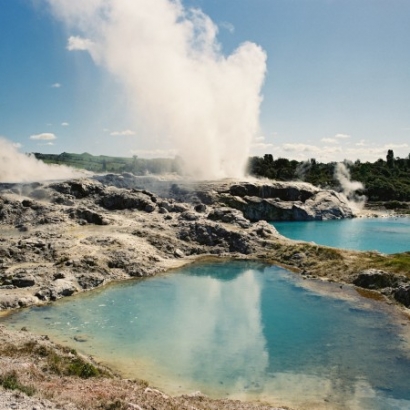
According to Erda Energy, their geo-exchange technologies can help retail stores, hospitals, universities and entire communities cut annual HVAC energy usage on average by 80%.
"Erda Energy is bringing a range of innovative, efficient and smart geo-exchange technologies to the rapidly developing U.S. market," said Kevin Stickney, managing director of Erda Energy's London office. "Our top priority is to reduce energy waste, cost and environmental impact for our clients, thereby changing the way our world uses heating and cooling energy. We're excited to come to the U.S. at a time when the need for effective distributed energy systems like Erda's has never been greater."
Erda Energy's patented coaxial inclined borehole technology harnesses the energies created in heating and cooling processes, feeding this back into a building in real time, or storing it for later use as needs fluctuate. The result is a closed loop system that provides heating, cooling and storage of energy on a more efficient basis than traditional technologies.
"As we move to a more sustainable economy, we must shift to renewable technologies that transform our approach to heating and cooling and reducing energy waste," said Mark Shorrock, clean energy entrepreneur and CEO of Tidal Lagoon Power. "I am excited by any solution that uses what is already given to us by nature in a clean, safe way, but it also has to work for the market and at scale. Erda Energy's smart thinking on deployment, performance, optimization and integration with other renewables makes it easy for customers to change the way they view and use energy."
Erda Energy's systems use real-time monitoring to track system performance, carbon and cost savings, findings which were recently confirmed by an Oxford University analysis.
"Erda Energy asked me to study their extensive database of operating data from Erda systems, and after comparing Erda's recorded performance to that of their prediction software, I found the data to be very much in line," said Professor Alex Rogers of Oxford University. "I also studied the energy and carbon impact made by the Erda systems compared to traditional heating, and found that energy savings of 81 percent and reduction of carbon emissions of at least 67 percent are possible. The way Erda Energy manages their systems to optimize for heating and cooling is very effective."

